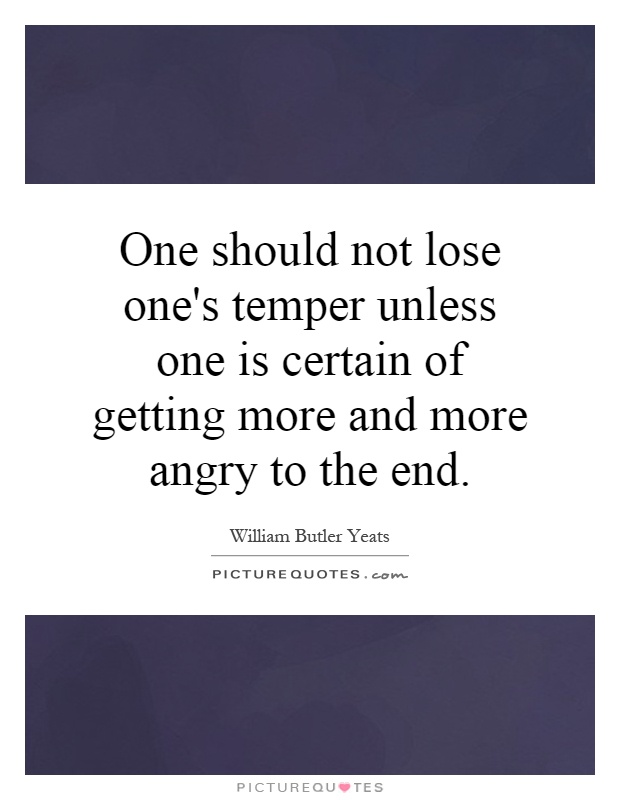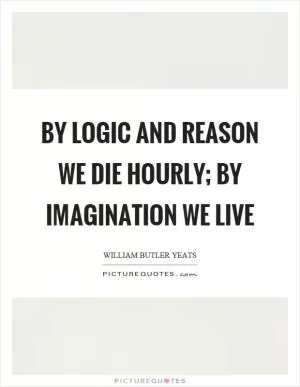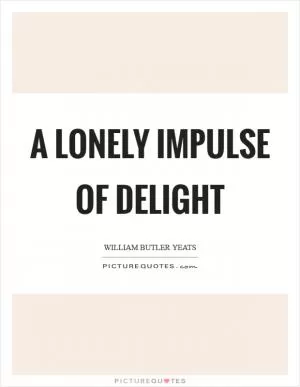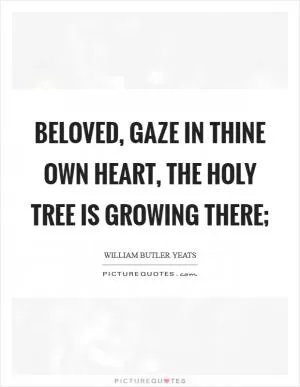One should not lose one's temper unless one is certain of getting more and more angry to the end

One should not lose one's temper unless one is certain of getting more and more angry to the end
William Butler Yeats, the renowned Irish poet and playwright, was known for his profound insights into human nature and the complexities of emotions. In his works, Yeats often explored the themes of love, loss, and the struggle for self-control. The quote, “One should not lose one's temper unless one is certain of getting more and more angry to the end,” reflects Yeats’ understanding of the destructive power of unchecked anger.Yeats believed that anger, when left unchecked, could lead to disastrous consequences. He understood that losing one’s temper in a moment of frustration or anger could escalate into a cycle of increasing rage and hostility. This cycle of anger can be difficult to break, leading to regrettable actions and irreparable damage to relationships.
In his poem “The Second Coming,” Yeats famously wrote, “The best lack all conviction, while the worst are full of passionate intensity.” This line speaks to the destructive power of unchecked anger and the importance of maintaining control over one’s emotions. Yeats believed that true strength lies in the ability to remain calm and composed in the face of adversity, rather than giving in to the temptation to lash out in anger.
Yeats’ own life was marked by personal struggles and emotional turmoil. His tumultuous relationships and political beliefs often led to conflicts and confrontations. Despite these challenges, Yeats remained committed to his art and his ideals, using his poetry as a means of exploring and expressing his deepest emotions.












 Friendship Quotes
Friendship Quotes Love Quotes
Love Quotes Life Quotes
Life Quotes Funny Quotes
Funny Quotes Motivational Quotes
Motivational Quotes Inspirational Quotes
Inspirational Quotes